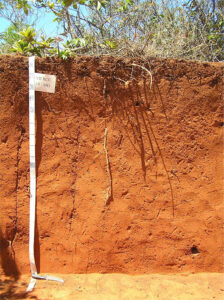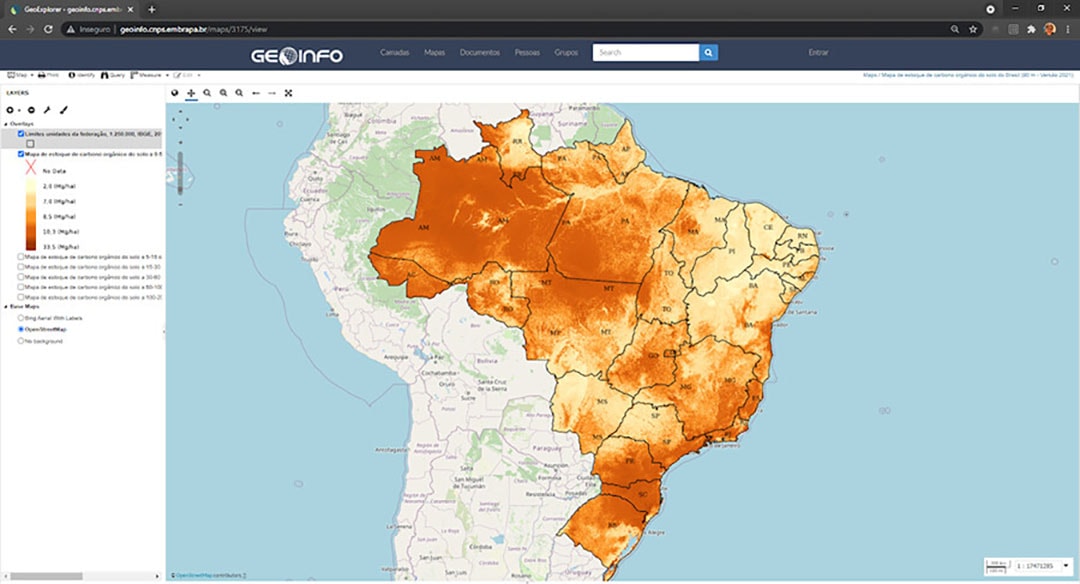Digital map shows carbon stocks in Brazilian soil

The Brazilian Agricultural Research Corporation (Embrapa) presented an updated version for its digital maps showing carbon stocks in all Brazilian territory. This information could help farmers adopt sustainable tillage practices and makes them eligible for carbon credits.
Available at Geological Service of Brazil (CPRM), the GeoInfo tool aims to support farmers, companies and public sector in their decision-making processes regarding land management.
Carbon credits

In addition to indicating soil quality, the concentration of carbon in soils can provides valuable information about greenhouse gas (GHG) emissions that increase global warming. Moreover, information about soil carbon stock could provide a basis to establish a carbon credits system, which encourages farmers to apply sustainable tillage practices.
“That is a very relevant initiative for Brazilian society and producers, because we need to protect our greatest asset: the soil”, said Cléber Soares, assistant secretary for Innovation, Rural Development and Irrigation at the Ministry of Agriculture, Livestock and Supply (Mapa).
Mr. Soares said knowledge about carbon stocks contributes to a sustainable usage of the soil. “Depending on how the soil is used, it may be emitting or sequestering carbon. This is because the more organic matter there is in the soil, the greater its power to sequester carbon is.”
He explained that a degraded soil – whether due to erosion, deforestation, compaction or other causes – not only loses organic matter and production capacity, but also emits more carbon into the atmosphere.
Combat climate change
The carbon stock at 30 cm depth level in all of Brazil’s territory is estimated to be 36 billion tons, which corresponds to 72% of global GHG emission per year. According to IPCC data, global emissions caused by human activities are as high as 50 billion tonnes per year.
According to Lourdes Mendonça Santos Brefin, coordinator of PronaSolo and general head of Embrapa Solos, there is a crucial and decisive role for sustainable use of agricultural land to combat climate change. “Putting soil on the global agenda could have a very important role in climate change. Agricultural soils can and should be part of climate change mitigation and solutions”, she added.
Largest carbon stocks
The updated map shows the largest carbon stocks in Brazilian subsoil are concentrated in the Southern region of the country and in the Amazon. “In the South, there are large amounts in mountainous areas. In the Amazon, the vegetation mass is very large. So, despite the hot climate and lots of rain, which promotes degradation, absorption of nutrients is very high, which promotes the accumulation of carbon”, explained Gustavo Vasques, Embrapa Solos researcher.
On the other hand, he revealed the Pantanal and Caatinga regions retain less carbon. “The Pantanal has a more sandy soil, which, despite a large amount of water, retains little carbon. And in the Caatinga we also have low carbon stocks due to low rainfall, which means sparse plant presence, which provides little carbon.”




